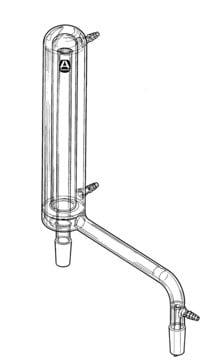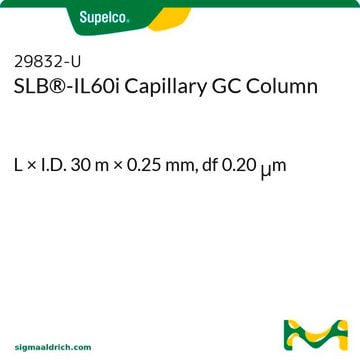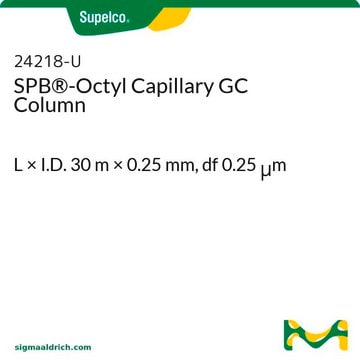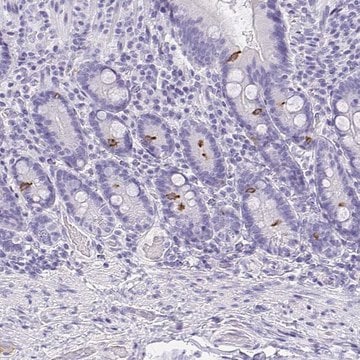24233-U
SPB®-Octyl
L × I.D. 60 m × 0.25 mm, df 1.00 μm
About This Item
Productos recomendados
material
fused silica
Quality Level
agency
EPA 1668
suitable for EPA 1613
parameter
-60-280 °C temperature (isothermal or programmed)
Beta value
63
df
1.00 μm
technique(s)
gas chromatography (GC): suitable
L × I.D.
60 m × 0.25 mm
matrix active group
Bonded; poly(50% n-octyl/50% methyl siloxane) phase
application(s)
environmental
food and beverages
column type
capillary non-polar
¿Está buscando productos similares? Visita Guía de comparación de productos
Categorías relacionadas
General description
USP Code: None
Phase:
- Bonded
- Poly(50% n-octyl/50% methyl siloxane)
- ≤0.32 mm I.D.: -60 °C to 280 °C (isothermal or programmed)
- ≥0.53 mm I.D.: -60 °C to 260 °C (isothermal or programmed)
Application
Other Notes
Legal Information
Elija entre una de las versiones más recientes:
¿Ya tiene este producto?
Encuentre la documentación para los productos que ha comprado recientemente en la Biblioteca de documentos.
Contenido relacionado
This page is intended to make it easier to find the consumables you need based on the analytical method you’re using. Methods included on this page come from the EPA, Standard Methods and ASTM.
This page is intended to make it easier to find the consumables you need based on the analytical method you’re using. Methods included on this page come from the EPA, Standard Methods and ASTM.
This page is intended to make it easier to find the consumables you need based on the analytical method you’re using. Methods included on this page come from the EPA, Standard Methods and ASTM.
This page is intended to make it easier to find the consumables you need based on the analytical method you’re using. Methods included on this page come from the EPA, Standard Methods and ASTM.
Nuestro equipo de científicos tiene experiencia en todas las áreas de investigación: Ciencias de la vida, Ciencia de los materiales, Síntesis química, Cromatografía, Analítica y muchas otras.
Póngase en contacto con el Servicio técnico








